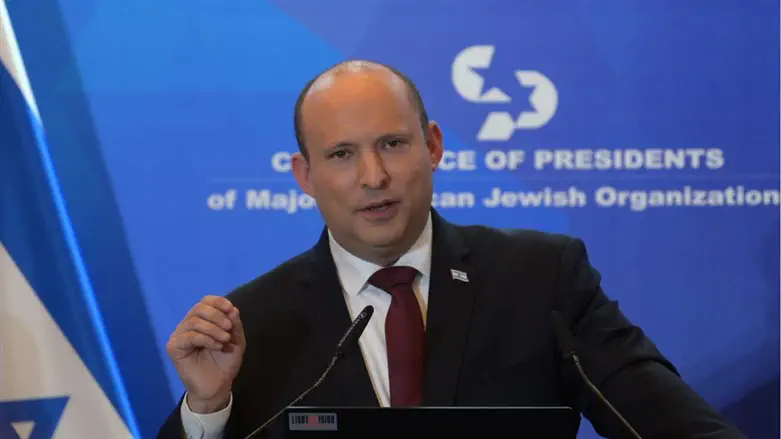
Alternate Prime Minister Naftali Bennett publicly called on the Biden Administration not to sign a new nuclear agreement with Iran amidst reports that the sides are close to reaching a final agreement.
"I call on President Biden and the American administration to refrain, even now at this last minute, from signing the agreement with Iran. This agreement will send approximately a quarter of a trillion dollars to the Iranian terror administration's pocket and to its regional proxies, and will enable Iran to develop, install and operate centrifuges, with almost no restrictions, in a mere two years," Bennett said.
"Throughout the past year, even when it was very close, we successfully convinced our White House counterparts not to give in to Iranian demands. I hope this will remain the case," he added.
"One way or another, the State of Israel is not a party to the agreement. Israel is not committed to any of the restrictions stemming from the agreement and will utilize all available tools to prevent the Iranian nuclear program from advancing," the Alternate Prime Minister concluded.
US State Department spokesperson Ned Price on Monday expressed some optimism about the prospects of salvaging the Iran nuclear deal.
“A deal is closer now than it was two weeks ago, but the outcome of these ongoing discussions still remains uncertain as gaps do remain,” Ned Price said at a State Department briefing, according to CNN.
A senior US official on Monday told Reuters that Iran has dropped some of its key demands to renew the nuclear agreement.
According to Reuters, one of the dropped demands was that international inspectors close some probes of Iran's nuclear program.
Speaking on condition of anonymity, the official told the news site that Iran "came back last week and basically dropped the main hang-ups to a deal."
"We think they have finally crossed the Rubicon and moved toward possibly getting back into the deal on terms that [US] President Biden can accept. If we are closer today, it's because Iran has moved. They conceded on issues that they have been holding onto from the beginning."
